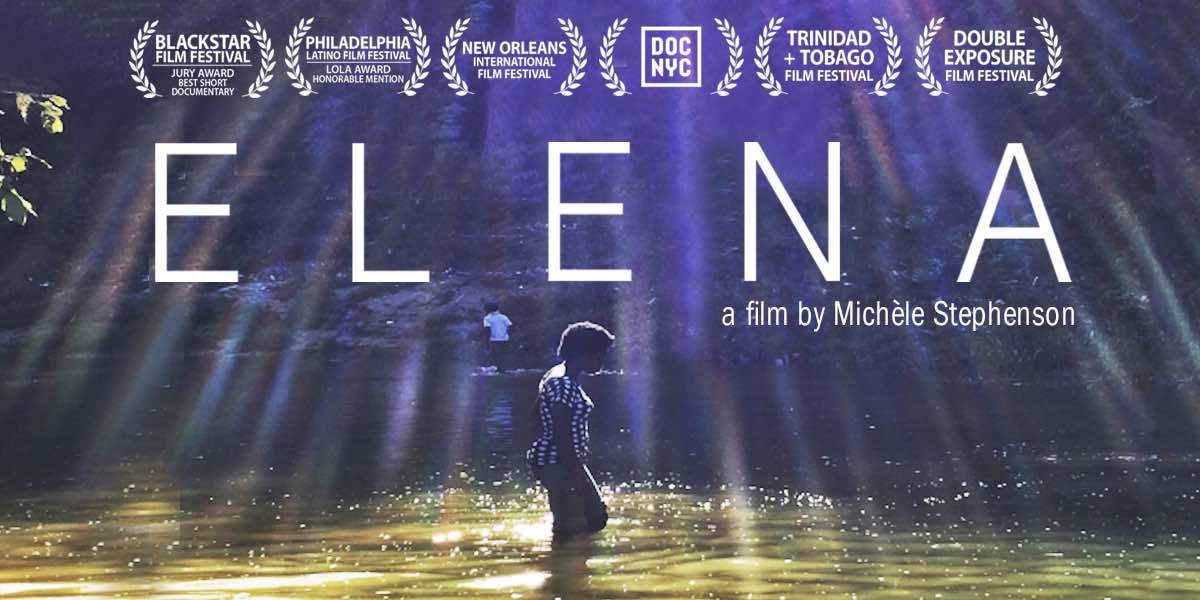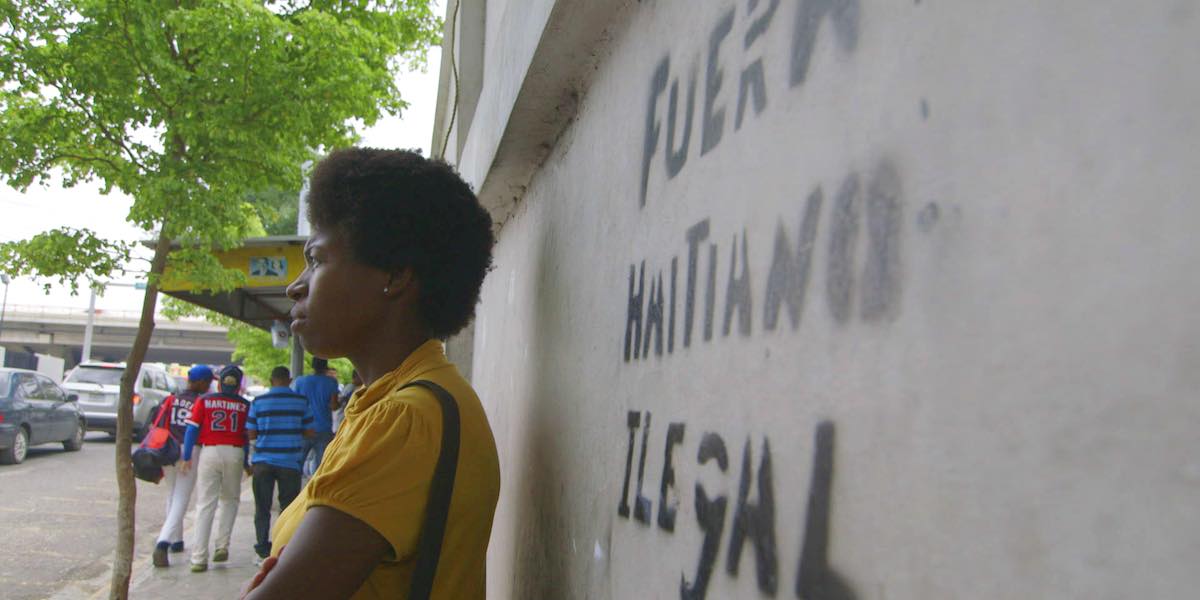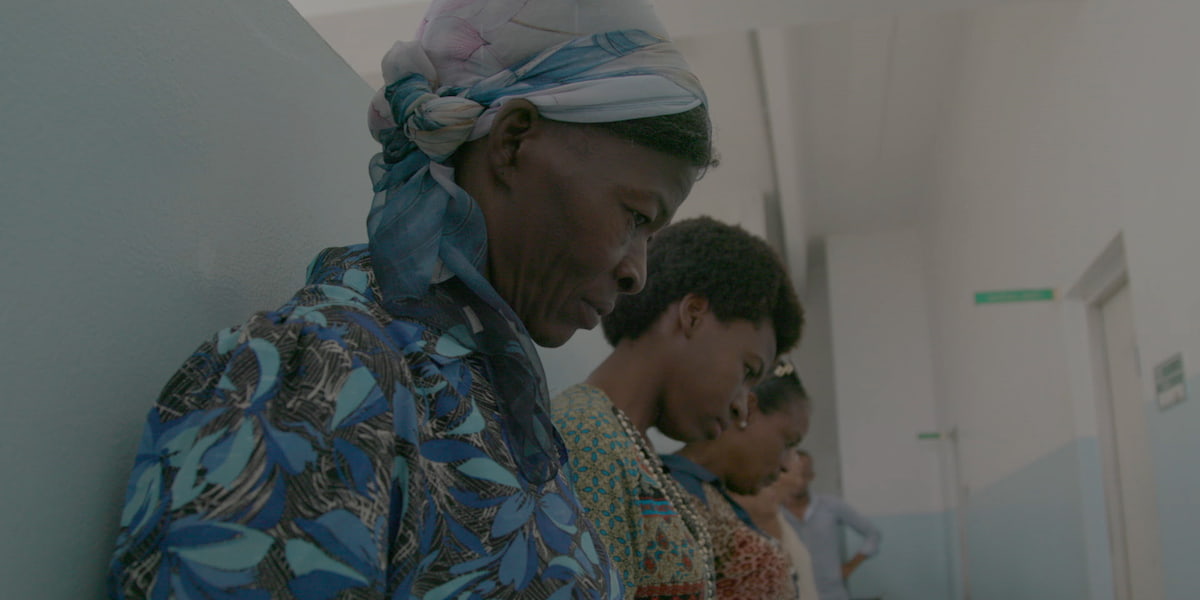Elena
Michèle Stephenson / United States, Dominican Republic / 2018 / 30 min





BlackStar Film Festival
Jury Award Best Short DocumentaryPhiladelphia Latino Film Festival
LOLA Award Honorable MentionNew Orleans International Film Festival
DOCNYC
Trinidad + Tobago Film Festival
Double Exposure Film Festival
Related Films
 Between Fire and Water(Entre Fuego y Agua)Viviana Gómez Echeverry, Anton WenzelCamilo is a young black man adopted by an indigenous couple in rural Colombia. He is the only black person in his community and has always felt ...
Between Fire and Water(Entre Fuego y Agua)Viviana Gómez Echeverry, Anton WenzelCamilo is a young black man adopted by an indigenous couple in rural Colombia. He is the only black person in his community and has always felt ... Perro BombaJuan CáceresSteevens is a young Haitian immigrant living a challenging, but somewhat stable life in Santiago de Chile: he has a construction job, a home, ...
Perro BombaJuan CáceresSteevens is a young Haitian immigrant living a challenging, but somewhat stable life in Santiago de Chile: he has a construction job, a home, ... Bad Hair(Pelo Malo)Mariana RondónA nine-year-old boy’s preening obsession with straightening his hair elicits a tidal wave of homophobic panic in his hard-working mother, in this ...
Bad Hair(Pelo Malo)Mariana RondónA nine-year-old boy’s preening obsession with straightening his hair elicits a tidal wave of homophobic panic in his hard-working mother, in this ... La Soledad(La Soledad)Jorge Thielen-Armand Handyman José lives with his family in La Soledad, a dilapidated villa located in what was once among Caracas’ most affluent neighborhoods. After ...
La Soledad(La Soledad)Jorge Thielen-Armand Handyman José lives with his family in La Soledad, a dilapidated villa located in what was once among Caracas’ most affluent neighborhoods. After ... The Forgotten Boys of Brazil(Menino 23 - Infâncas Perdidas no Brasil)Belisario FrancaThe Forgotten Boys of Brazil follows the research of historian Sidney Aguilar, beginning with the discovery of bricks marked with Nazi swastikas on a ...
The Forgotten Boys of Brazil(Menino 23 - Infâncas Perdidas no Brasil)Belisario FrancaThe Forgotten Boys of Brazil follows the research of historian Sidney Aguilar, beginning with the discovery of bricks marked with Nazi swastikas on a ...Pricing
Related Subjects
Download
Spanish and Haitian Creole with English subtitles
USE CODE “ELENA” AT CHECKOUT FOR A SPECIAL 40% DISCOUNT FOR MID-LENGTH FILMS.
In 1937, tens of thousands of Haitians and Dominicans of Haitian descent were exterminated by the Dominican army, on the basis of anti-black racism. Fast-forward to 2013, the Dominican Republic’s Supreme Court stripped the citizenship of anyone with Haitian parents, retroactive to 1929, rendering more than 200,000 people stateless.
Elena has lost her citizenship due to this ruling, and her family stands to lose their rightful access to legal residency in the Dominican Republic if they don’t manage to get their documents on time. Negotiating a mountain of opaque bureaucratic processes and a racist, hostile society, Elena becomes the face of the struggle to stay in a country built on the labor of her father and forefathers.
Director Michèle Stephenson’s documentary follows Elena and her family through their tribulations and small joys, as they fight to remain in the country they’ve called home for generations.
Press
“Stephenson shows how the act of legitimizing one’s legal right to participate in society through systems such as education, democracy, and employment can literally pull a person out of obscurity by giving them a legally recognized identity.” – Rachael Dreyer, EMRO
“There is an instant emotional bond with Elena, which grows stronger as we watch the young social worker navigate a racist society seeking simple justice and equity. In this way, Elena makes a fantastic introduction to the Reconocido movement and the material reality of Haitians and Dominicans of Haitian descent living in the Dominican Republic.” – J. Zimmerman, Video Librarian
“Elena exposes the immense mundanity of racist governance—and the exhaustion produced by navigating it—where exclusion is managed, more than anything, by bureaucracy and its gatekeepers. In doing so, it powerfully engages with the difficult question of how coloniality and its expression in anti-Black racism can be understood and challenged when they are reproduced largely in the absence of white people.” – Larissa Andrea Johnson, Film Quarterly
“An intimate and engrossing portrait of how the specters of historical traumas haunt Dominicans of Haitian heritage, who are relegated to the fringes of social acceptance.” – Haitian Times
“Elena is a proud celebration of Haitian heritage in the Dominican Republic.” – Alonso Aguilar, Hyperallergic
“Elena spotlights one woman’s fight against racism.” – The New York Carib News
About the Director
Her most recent film, American Promise, was nominated for three Emmys including Best Documentary and Best News Coverage of a Contemporary Issue. The film also won the Jury Prize at Sundance and was selected for the New York Film Festivals’ Main Slate Program. Stephenson was recently awarded the Chicken & Egg Pictures Filmmaker Breakthrough Award and is a 2016 Guggenheim Fellow. Her current work, Hispaniola, is supported by the likes of the National Film Board of Canada, the MacArthur Foundation, Telefilm Canada, the Ford Foundation, and the Sundance Documentary Fund.
Her community engagement accomplishments include the PUMA BritDoc Impact Award for a Film with the Greatest Impact on Society, a Revere Award Nomination from the American Publishers Association, and she is a fellow of Skoll Storytellers of Change. “Promises Kept”, written along with co-authors Joe Brewster and Hilary Beard, won an NAACP Image Award for Outstanding Literary Work.
Notes on Film
“As a child, growing up in a Haitian and Latinx household and diaspora communities in North America, I continued to overhear stories about the history of my birthplace relating to race, color, class, colonialism, and human rights. Those observations formed the basis of how I made sense of the world that surrounded me, especially as those notions collided with the racism, segregation and discrimination that we faced in our adopted countries. Those experiences fuelled my passion to dig deeper into the consequences of our deeply painful common history of slavery and colonialism and how we continue to internalize such self-hatred.
Elena, in some ways, is a culmination of years of working through storytelling approaches that allowed me to land back home and use a creative way to unearth and express that childhood pain.
As a hyphenated Black Latina, I felt compelled to express how deeply embedded the racial caste system is in our Latinx communities and how identity and citizenship are so closely connected to anti-Blackness—and yet its discussion either escapes or is superficially misconstrued by mainstream media.
Elena highlights universal themes of access to citizenship, migration, and systemic racism. In the US, we are witnessing the chipping away at immigrants’ and citizens’ rights. We are facing a global crisis of white supremacist manipulation of migrants’ rights, birthright citizenship, and human dignity for black and brown people.
My objective is to connect the film to a network of committed partners in the Caribbean region, Latin America, the US, and internationally, to utilize the film as a platform for their work on protecting the rights of migrants and citizens, and to deepen people’s understanding of the intersection between anti-Black racism, migration, and citizenship rights.”
– Michèle Stephenson, Director/Producer